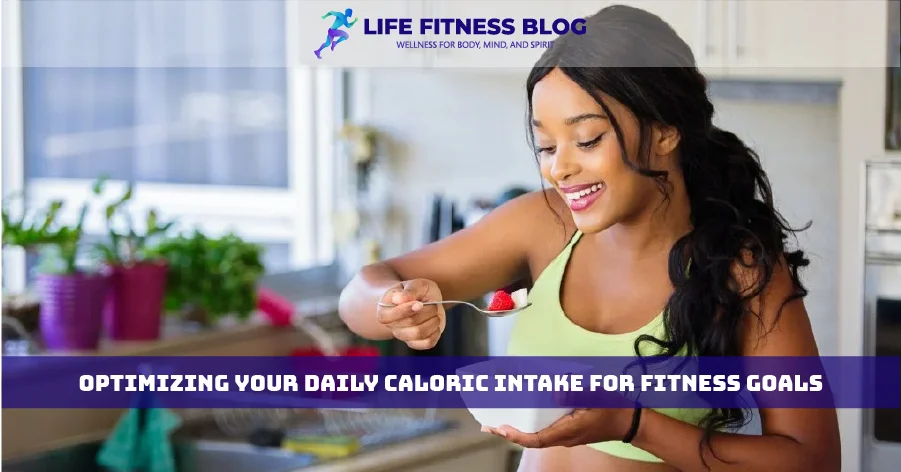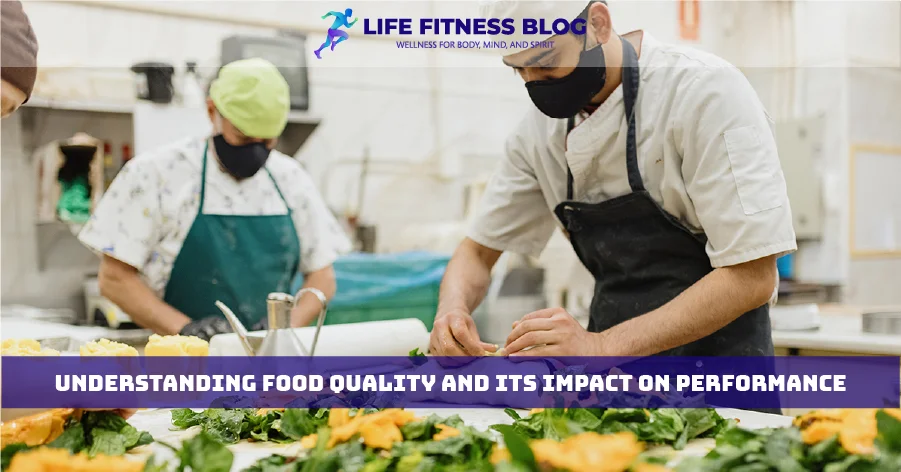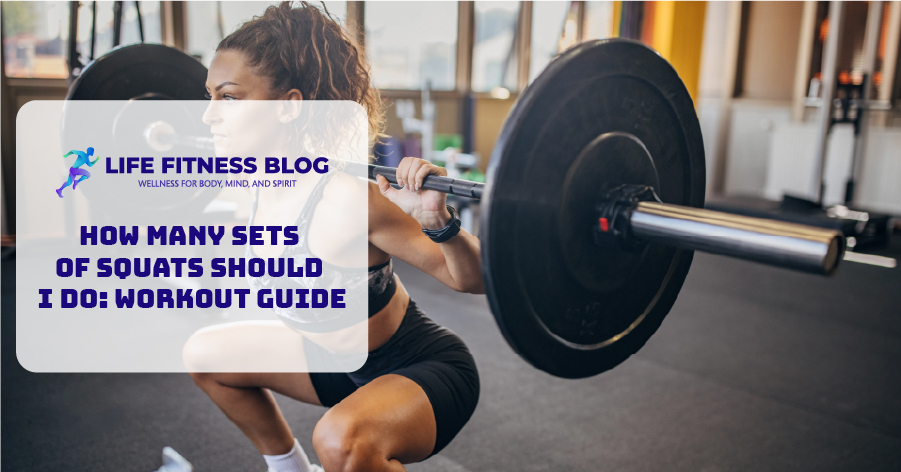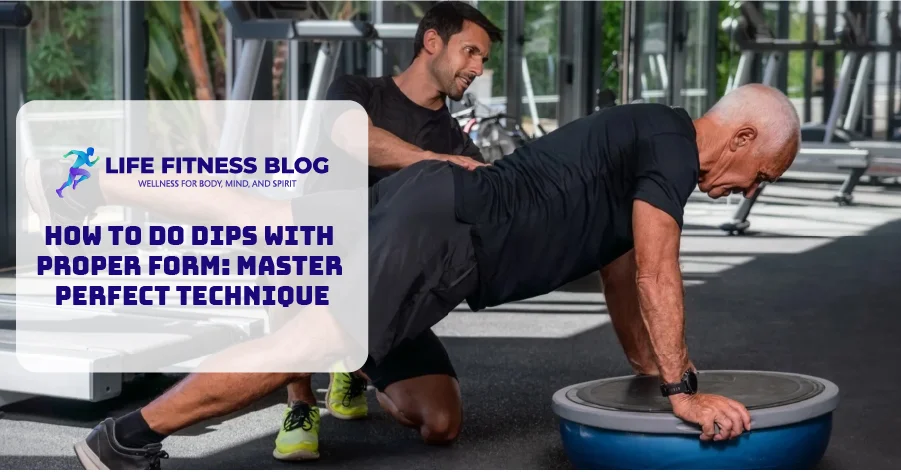Achieving your fitness goals is not just about exercising. It’s also about eating the right balanced diet. This diet should include important macronutrients and micronutrients. A good nutrition plan is key to staying healthy, improving your athletic performance, and recovering faster.
By knowing how nutrition and fitness are connected, you can get the most out of your workouts. This knowledge helps you reach new levels in your fitness journey.
Table of Contents
Link Between Nutrition and Fitness Performance
Proper nutrition is key to achieving top fitness performance. Your body needs a mix of nutrients to fuel workouts, recover muscles, and hit your goals. Knowing how food affects your body can unlock your fitness potential.
How Food Fuels Your Workouts
The food you eat gives your body energy for exercise. Carbohydrates are especially important for your muscles. You can keep your energy levels up by planning your calorie intake and nutrient timing.
The Science Behind Nutrient Utilization
Your body’s use of nutrients is complex but interesting. Proteins help build and fix muscles, while fats support hormone production and energy. Knowing how your body uses these nutrients can guide your diet choices.
Impact on Recovery and Results
Nutrition is not just for fueling workouts; it’s also for recovery. The right nutrients after exercise help fix muscles, reduce inflammation, and boost fitness results. Focusing on recovery nutrition can make your gym efforts more effective.
| Nutrient | Role in Fitness Performance |
|---|---|
| Carbohydrates | Provide the primary source of energy for your muscles during exercise |
| Proteins | Essential for building and repairing muscle tissue |
| Fats | Help regulate hormone production and provide long-lasting energy |

Essential Macronutrients for Athletic Success
To reach your peak athletic performance, you need a diet full of essential macronutrients. These three main nutrients give your body the fuel and building blocks for top fitness. Let’s look at how proteins, carbohydrates, and fats help you in your athletic journey.
Proteins: The Building Blocks of Muscle
Proteins are key for building and fixing muscle tissue and supporting your body’s functions. Eating high-quality protein sources like lean meats, eggs, dairy, and plant-based options like beans and lentils helps keep and grow your muscle. Make sure to get a balanced amount of proteins to help with strength training and muscle recovery.
Carbohydrates: Fueling Your Workouts
Carbohydrates are your body’s main energy source, especially during intense workouts. Complex carbs in whole grains, fruits, and veggies give your muscles and brain steady energy. Eating carbs before and during workouts helps you train harder and longer, boosting your fitness and performance.
Fats: The Unsung Hero of Athletic Nutrition
Dietary fats are often overlooked but are crucial for athletic performance. Healthy fats in avocados, nuts, seeds, and fatty fish support hormone production, joint health, and energy use. Adding these fats to your diet supports your overall athletic health and recovery.
By balancing proteins, carbohydrates, and fats, you can make a balanced diet that fuels your athletic goals and supports your fitness journey.
The Importance of Proper Nutrition for Fitness: A Comprehensive Guide
Getting fit is not just about working out. Eating right is key to fueling your workouts and helping your muscles recover. This guide will show you how to make the most of your nutrition. We’ll cover meal timing and the importance of eating quality foods.
Timing Your Meals for Maximum Benefits
When you eat can affect your fitness goals. Eating the right foods before, during, and after workouts boost energy and helps muscles recover. This can speed up your progress.
Quality vs. Quantity in Nutrition
It’s not just about how much you eat, but what you eat. Choose whole, nutrient-rich foods to give your body what it needs. This way, you get the most out of your food and see better results.
Creating Sustainable Eating Habits
Keeping healthy eating habits is crucial for long-term fitness. Find a meal plan that fits your life and tastes. Try new recipes and make healthy eating fun. Small changes can make a big difference in your health and fitness.
| Meal Timing | Nutrient Timing | Food Quality |
|---|---|---|
| Pre-workout During workout Post-workout | Carbohydrates Protein Healthy fats | Whole foods Nutrient density Minimally processed |
Understanding the role of nutrition in fitness can help you reach your goals. It’s about making healthy choices that last for the long haul.
Micronutrients: The Hidden Heroes of Fitness Nutrition
Many athletes focus on macronutrients like proteins, carbs, and fats. However, micronutrients like vitamins and minerals are key to top fitness. They help your body perform at its best.
Micronutrients are small but mighty. They fuel your body and boost your fitness. They help with energy, muscle recovery, and keeping you healthy.
Eating a balanced diet with lots of micronutrients is crucial. Here are some important ones to know:
- Iron – It helps make red blood cells, which carry oxygen to your muscles.
- Calcium – It keeps your bones strong and helps prevent injuries.
- Vitamin C – It’s important for fixing tissues and recovering from workouts.
- Magnesium – It helps your muscles and nerves, preventing cramps and tiredness.
| Micronutrient | Key Benefits for Fitness |
|---|---|
| Iron | Oxygen transport, energy production |
| Calcium | Bone health, injury prevention |
| Vitamin C | Collagen production, tissue repair |
| Magnesium | Muscle and nerve function, cramp prevention |
Eating foods rich in micronutrients like leafy greens, nuts, seeds, and lean proteins is key. It helps you reach your fitness goals. By focusing on micronutrients, you fuel your body for top performance and recovery.
Optimizing Your Daily Caloric Intake for Fitness Goals
To reach your fitness goals, you need to balance how many calories you eat and how much you burn. Eating the right foods is key. It fuels your workouts, helps your muscles recover, and keeps your weight in check.
Calculating Your Personal Calorie Needs
Finding out how many calories you need each day is the first step. This depends on your age, gender, height, weight, and how active you are. Online tools and formulas can help figure out your basal metabolic rate (BMR) and total daily energy expenditure (TDEE).
Adjusting Calories for Different Training Phases
- When you’re training hard, you might need to eat more calories. This helps your muscles grow and recover.
- If you’re trying to lose fat, you might eat fewer calories. But keep your activity level the same.
- Changing your calorie intake is key. It depends on your fitness goals and how hard your training is.
Managing Weight Through Proper Nutrition
Keeping a healthy weight is important for fitness and performance. By controlling your calorie intake and planning your meals well, you can manage your weight. This also helps improve your body shape.
| Weight Management Approach | Calorie Intake Recommendation |
|---|---|
| Weight Loss | Create a moderate calorie deficit (500-1000 calories below TDEE) |
| Weight Maintenance | Consume calories equal to your TDEE |
| Weight Gain | Increase calories by 300-500 above your TDEE |
Remember, losing or gaining weight takes time. It’s important to find a nutrition plan that fits your fitness goals and lifestyle for the long term.

Hydration Strategies for Peak Performance
Proper hydration is key for top fitness performance. It’s vital for both elite athletes and fitness lovers. Being well-hydrated can greatly improve your workouts, recovery, and results.
To reach your peak, you need a good hydration plan. This plan should cover before, during, and after your exercises. Here are some tips to keep your body hydrated and performing well.
Prehydrate for a Strong Start
Start your workout with a good amount of hydration. Drink lots of water before your session. This prepares your body for the challenges ahead.
Hydrate During Your Workout
Stay hydrated during your workout. Carry a water bottle and drink often. Listen to your body and drink more if you’re thirsty or feel tired.
Rehydrate After Your Workout
Drinking water after your workout is just as important. It helps replace lost fluids and aids in recovery. Adding electrolyte-rich drinks or foods can also help with hydration and mineral replenishment.
By following these hydration strategies, you’ll improve your performance and fitness routine. Remember, nutrition and hydration are both important for your health and success in sports.
Strategic Meal Planning for Fitness Success
Reaching your fitness goals isn’t just about working out. It’s also about eating the right foods at the right time. Planning your meals carefully is key to getting the most from your workouts and staying healthy.
Pre-workout Nutrition Guidelines
Before you exercise, eat a meal or snack that’s full of carbohydrates, protein, and healthy fats. This mix helps you perform better and last longer during your workout.
Post-workout Recovery Meals
After a tough workout, your body needs to refuel. Focus on protein to fix and grow your muscles, and carbohydrates to refill your energy stores. Adding healthy fats and various nutrients helps your body recover faster.
Weekly Meal Prep Strategies
- Plan your meals ahead to have the right foods ready.
- Make big batches of healthy proteins, grains, and veggies to save time.
- Use good food storage containers to keep meals fresh all week.
- Try new recipes and flavors to keep your meals exciting.
By planning your meals wisely and matching them to your workout schedule, you can fuel your body for top performance. This supports your health and wellness too.
Supplements: When and How to Use Them Effectively
Supplements can help you reach your fitness goals. But, it’s key to know when and how to use them right. They should be part of a balanced diet.
Supplements are good when your dietary intake doesn’t meet your supplement needs. This happens when you’re more active and need more nutrients. They fill nutritional gaps and help with muscle recovery and growth.
Evaluating Your Supplement Needs
Before adding supplements, check your dietary intake and look for gaps. Think about:
- Your caloric intake and macronutrient balance
- The quality and variety of whole foods in your balanced diet
- Your training goals and nutrient needs
- Any health conditions or dietary restrictions
Knowing your supplement needs helps you choose the right ones for your fitness journey.
Integrating Supplements Effectively
Use supplements with a balanced diet. They shouldn’t replace whole foods with a balanced diet. Instead, they’re a supplement to your nutrition plan.
Research and pick high-quality supplements that fit your needs and goals. Follow the recommended amounts and talk to a healthcare professional or registered dietitian. This ensures safe and effective use.
Remember, supplements aren’t a quick fix. They’re a tool to support your fitness and nutrition plan. By understanding your supplement needs and using them wisely, you can get the most benefits and reach your goals.
Understanding Food Quality and Its Impact on Performance
The quality of your food is as key as how much you eat when it comes to fitness. Eating high-quality, nutrient-rich foods fuels your workouts and boosts your health. This way, your body gets the vitamins, minerals, and other good stuff it needs to perform well.
Food quality greatly affects your fitness goals. Foods like fruits, veggies, lean proteins, and whole grains give you lots of nutrients. These nutrients boost your energy, help you recover, and help muscles grow. On the other hand, processed, high-calorie foods that lack nutrients can make you feel tired and slow down your progress.
To improve your fitness, it’s important to eat a variety of high-quality foods. Making smart food choices gives your body what it needs to do well in workouts, recover fast, and reach your fitness goals.

Also Read:
FAQs
What are the essential macronutrients for athletic performance?
Protein, carbohydrates, and fats are the three essential macronutrients. Protein builds and repairs muscle, carbohydrates provide energy, and fats support hormone production and energy storage.
How does nutrition impact recovery from workouts?
Proper nutrition after a workout is crucial for muscle recovery. Consuming a balanced meal with protein and carbohydrates helps repair damaged tissues and replenish energy stores.
What are some key micronutrients for athletes?
Iron, calcium, vitamin C, and magnesium are essential micronutrients for athletes. They support various bodily functions, including oxygen transport, bone health, tissue repair, and muscle function.
How can I calculate my daily calorie needs for fitness goals?
You can use online calculators or consult with a healthcare professional to estimate your daily calorie needs. Factors like age, gender, weight, height, and activity level influence these calculations.
What are some strategies for staying hydrated during and after workouts?
To stay hydrated, drink plenty of water before, during, and after workouts. Consider electrolyte-rich drinks, especially during intense or prolonged exercise.




